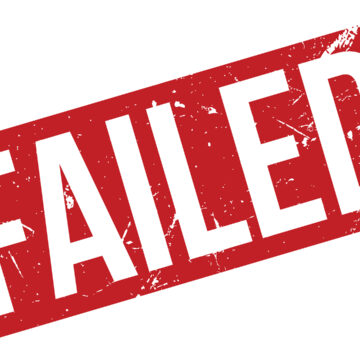“Fail fast, fail often”. This is something you often hear when people are talking about start-ups and scale-ups. In other words, if you have an innovative idea, don’t wait too long before experimenting. It is the only way you will see if what you have in mind actually works. For our part, we find that this places far too much emphasis on the word “fail”. We prefer to see it as “testing the boundaries” and “rapidly iterating”, in our view of the world an essential part of your design process. Failing is actually not an option and definitely not a goal in itself.
Iterating simply means working out in advance which different scenarios you are going to test. In order to learn from them and to improve the process step by step, by making changes. This links to the feedback loop of build, measure, learn that is at the heart of Eric Ries’ Lean Start-up method. A great method in its own right, but we are adding our own twist to it. We do not really believe in a pre-digested approach and are more in favour of building in thoroughly thought-out feedback loops and testing the boundaries.
Ries recommends developing a minimum viable product (MVP) as quickly as possible and involving your target market in this, so that you can start the learning process. In our approach, we reinterpret that as going as rapidly as possible from lab to pilot to production. We also regularly do limited production runs for customers so that they can go to market, while we further improve the process in parallel.
The benefits
This way of working has important benefits, that specifically gain the trust of (potential) investors.
- Having a technical due diligence carried out by an objective party such as Bodec will give you an insight into the opportunities and risks, as well as the costs that are involved in your production process. This answers the question of whether or not you are on the right path (how correct were your assumptions?) and gives you the opportunity to correct along the way, if necessary.
- That keeps the possible risks to a minimum. You will be uncovering them at an early stage so that you can deal with them in good time.
- Instead of ending up in an endless quest for perfection, you improve the process as you move forwards, which means that you can also go to market more rapidly.
- Because you can outsource small-scale production runs, you don’t yet need your own factory, and you can reduce your initial investment to a minimum. The money you save now you can invest later in a factory that is perfectly adapted to your product, thanks to your smart iterative process.
Entrepreneurial mindset
You need an entrepreneurial mindset if you want to start working in this way. Not just for the start-up and scale-up, but also for the people you need to support you through them. You can, of course, also look for support from universities or research institutes, for example. They certainly have the knowledge on tap, but often they are marching to a very different drum.
We are entrepreneurs ourselves too, and we know better than anyone how important it is to be proactive. Failure is never the goal, but if you want to make sure that your initiative is successful, it is essential to have the courage to risk failure and test the boundaries. In order to learn from it and then move on quickly. This is the only way that you can be a pioneer in the area of innovation.
For a successful approach like this, you need knowledge, creativity, pragmatism and persistence, and that is exactly what we offer.


